And more of the latest sleep news and research
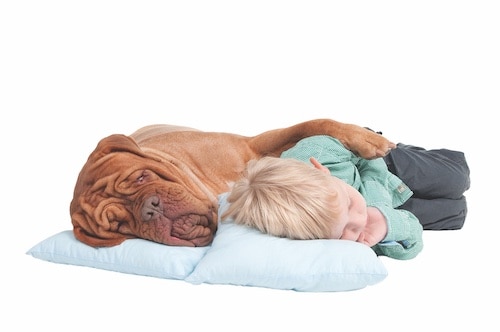
Does your cat or dog regularly cuddle up with your child at night? Have no fear — sleeping with the family pet could be beneficial to your child’s rest. If not beneficial, then certainly not detrimental.
A study from researchers at Concordia University in Montreal looked at the effect of co-sleeping with furry friends on a child’s rest. In the study, 118 children and adolescents between the ages of 11 and 17 filled out questionnaires about their sleep, wore sleep trackers and completed a home sleep study one night. Results were published online April 29 in Sleep Health, the journal of the National Sleep Foundation.
Researchers found that sleeping with the family pet did not prompt night awakenings or disrupt sleep duration, as previously thought.
The study authors noted: “While we lack sufficient causal evidence to claim that co-sleeping with pets is beneficial, it did not seem to impair children’s sleep. Overall, reported co-sleeping with pets appeared to be a neutral activity with no demonstrable impact on objectively measured sleep. However, children who reported frequently co-sleeping with pets subjectively experienced better quality sleep; this is consistent with past findings among adults that co-sleeping is associated with improved perceived sleep quality.”
In other words, sleeping with a furry friend may provide companionship and a little extra comfort in the night. And it certainly won’t hurt.
Rest Easier in Airports
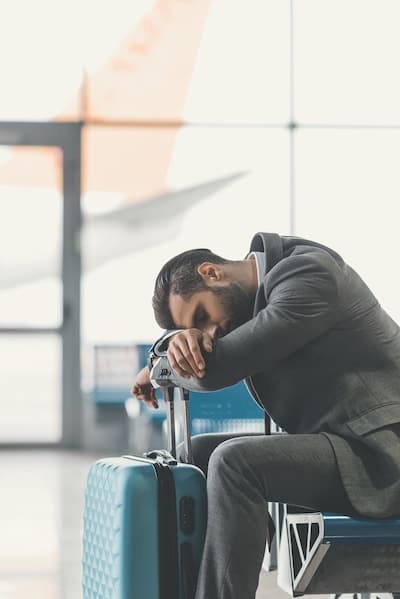
Forty Winks nap lounge at London’s Heathrow Airport. It plans to install a second sleep lounge in Heathrow and an additional sleep lounge in New York’s John F. Kennedy International Airport, which already has sleep pods.
These first- and business-class lounges will feature EnergyPods sleep capsules created in partnership with Restworks, according to a May 20 article in Globetrender.
“In late 2019, we carried out a survey of over 100,000 lounge guests asking what they would like to see featured in our lounges,” said Tom Stevens, British Airways’ director of brand and customer experience. “Sleep pods were right at the top of their list.”
The pods are free but can’t be reserved. When using a pod, travelers can set a timer to wake them up or push a button for a programmed 20-minute nap. The chair reclines and an adjustable privacy visor can be moved to block out distractions, the article said.
This is far from the first sleep lounge in airports. A January 2020 article in One Travel listed five U.S. airports that have sleep pods: John F. Kennedy International Airport, Philadelphia International Airport, Hartsfield-Jackson Atlanta International Airport, Charlotte Douglas International Airport in North Carolina, Dallas/Fort Worth International Airport and Washington Dulles International Airport in Washington, D.C.
Maybe more sleep options will mean fewer groggy arrivals.
Weight Cycling Linked to Sleep Problems
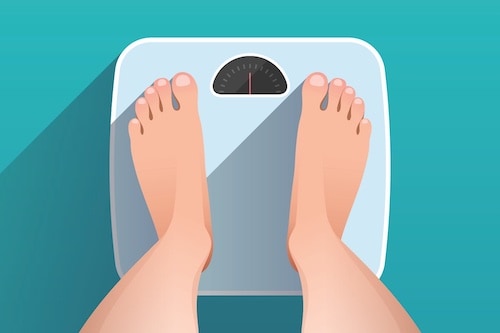
Women who have lost and regained 10 pounds or more — even once — have increased rates of insomnia and other sleep problems according to a study published online April 30 in the Journal of Cardiovascular Nursing.
“History of weight cycling was prospectively associated with several measures of poor sleep, including short sleep duration, worse sleep quality, greater insomnia, greater sleep disturbances and greater daytime dysfunction among diverse U.S. women across various life stages,” wrote study author Brooke Aggarwa of Columbia University in New York.
The study looked at the data of 506 women (average age 37) who were enrolled in the Go Red for Women American Heart Association research project. Of the more than 500 women, 72% reported one or more episodes of weight cycling (not including pregnancy). Researchers analyzed the effects of weight cycling on sleep at the time of the study and one year later.
In both instances, the women who had a history of weight cycling were more likely to have sleep problems. Each episode of losing and then regaining weight was associated with shorter sleep time, poorer sleep quality, longer time falling asleep, more severe insomnia, more sleep disturbances, less efficient sleep and more frequent use of sleep medications.
Additionally, women who lost and gained weight were five times more likely to score in the high-risk range for developing sleep apnea.
Number Crunching – 54%
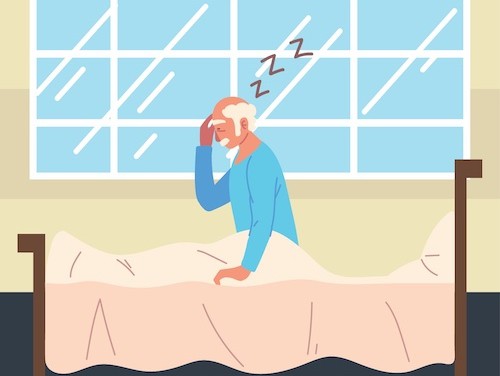
The percentage of adults between the ages of 50 and 80 who had trouble falling asleep or staying asleep in the week before they were surveyed for the National Poll on Healthy Aging, conducted in late January by researchers at the University of Michigan in Ann Arbor, Michigan. This is twice the percentage of what older adults reported in 2017.
Source: University of Michigan
Does Remote Learning Improve Sleep?
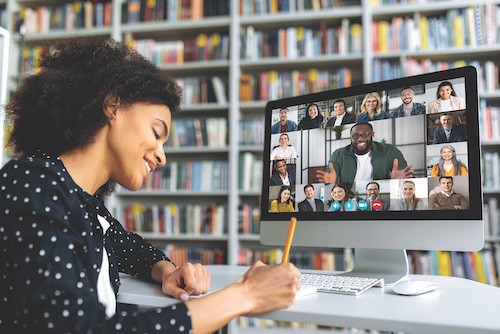
Sleep researchers have theorized that young adults don’t get enough sleep because they are busy with school, work and other activities. The pandemic provided a unique opportunity to test that theory.
Researchers at Simon Fraser University in Burnaby, British Columbia, asked 80 students enrolled at a 2020 summer session at the university to keep sleep diaries, complete questionnaires and provide written reports about their sleep behaviors for two to eight weeks. A subsample also provided sleep tracker data. This was compared with data from 450 students enrolled in the same course during previous summer sessions, according to a news release.
Researchers found that students went to bed 30 minutes later on average than pre-pandemic students. They slept more during the day and less at night. Despite not having early classes and 44% fewer workdays than students in previous semesters, they did not sleep more.
“One very consistent finding is a collective delay of sleep timing — people go to bed and wake up later,” said study author and psychology professor Ralph Mistlberger. “Not surprisingly, there is also a marked reduction in natural light exposure, especially early in the day. The lack of change in sleep duration was a bit of a surprise, as it goes against the assumption that young adults would sleep more if they had the time.”
The study was published April 26 in Plos One.
“My advice for students and anybody working from home is to try to get outside and be active early in the day because the morning light helps stabilize your circadian sleep-wake cycle. This should improve your sleep and allow you to feel more rested and energized during the day.”
Fall Asleep Watching TV
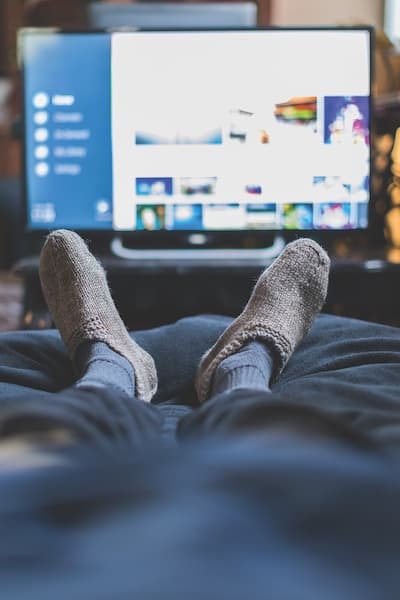
BedTimes wouldn’t normally recommend TV before bed, but this might be the exception.
“Headspace Guide to Sleep” is a series on Netflix that combines interesting facts about rest before concluding with a guided meditation to help viewers fall asleep. Topics of the 20-minute episodes range from letting go of stress to the weird world of dreams. It also addresses facts about sleeping pills and finding the perfect sleep rhythm.
“Welcome to the first series where we hope you won’t make it to the end credits still awake,” said Eve Lewis Prieto, the series’ narrator in the first episode.
Vera Alves, a reviewer for the NZ Herald in Auckland, New Zealand, wrote in the May 1 issue: “If, like me, you’re trying and failing to phase out the need for screens before you sleep, this just might be the perfect transition, combining what you want to be doing with what you should be doing before bed.”



